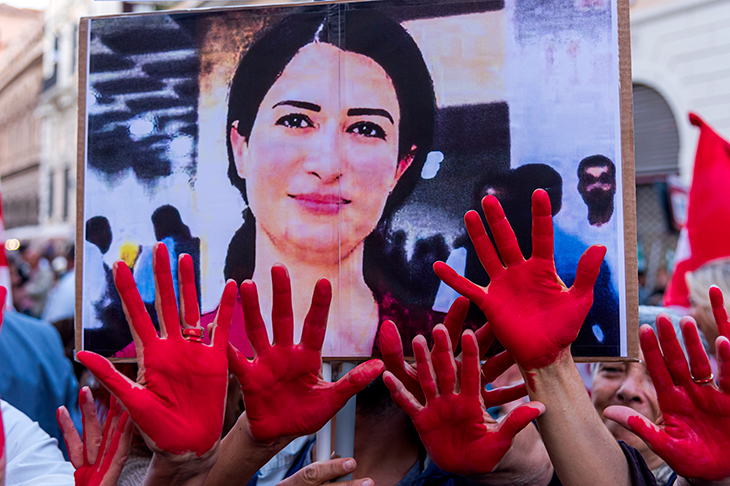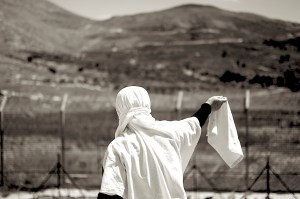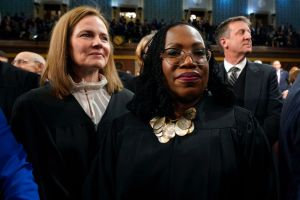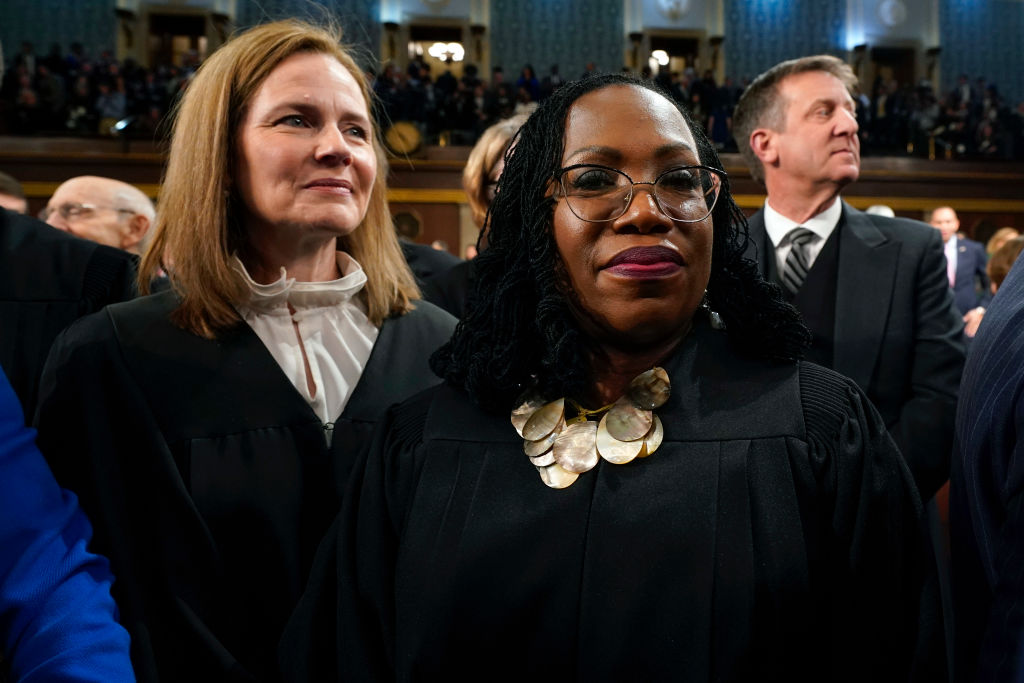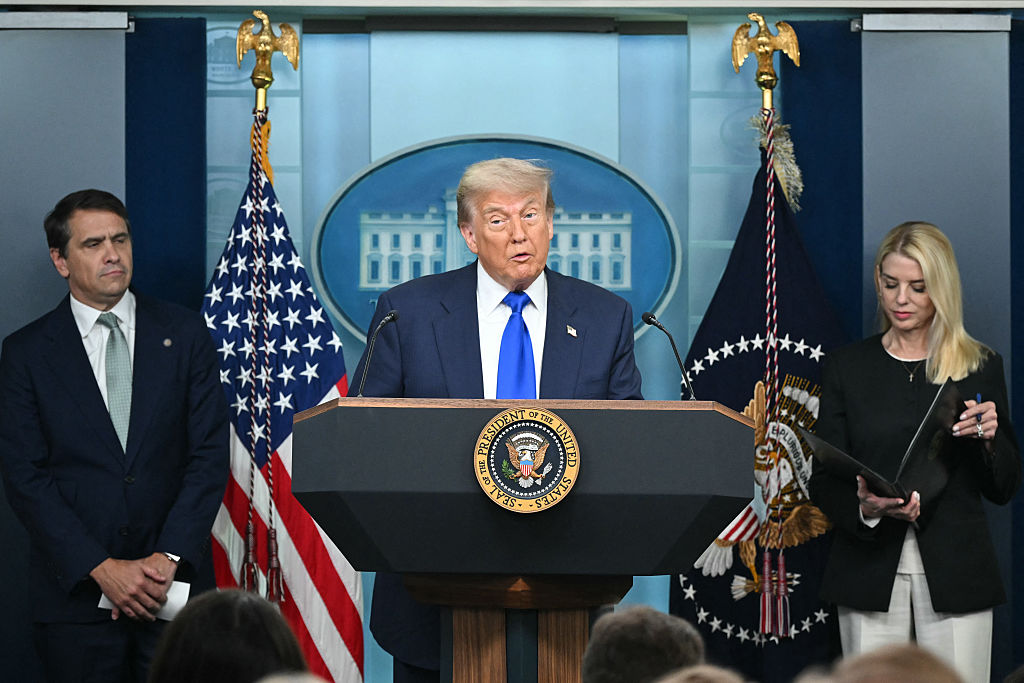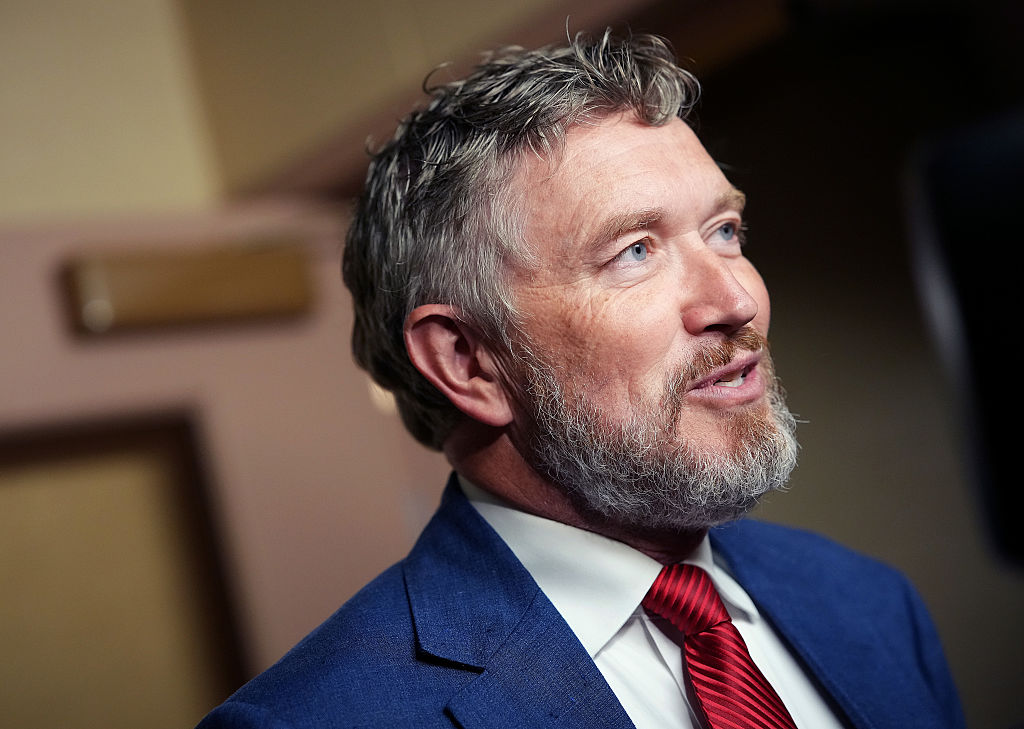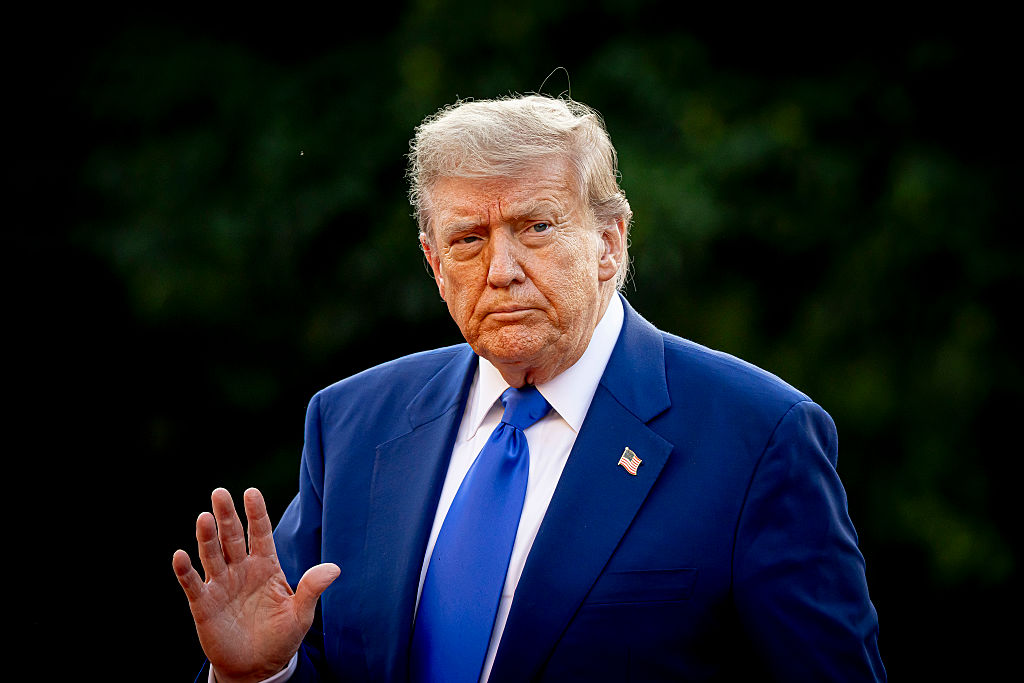While American troops were hurriedly leaving northeastern Syria, a young female Kurdish politician called Hervin Khalaf was pulled from her car and executed by the side of the road. Actually, the Kurdish media said she was raped and then stoned to death. They blamed one of the Arab militias being used by Turkey in its invasion. A grim video posted online shows a man holding a Kalashnikov nudging her body with the tip of his boot, as you would a dead animal. The video has not been authenticated and the militia accused of doing this says it was miles away at the time. But in Khalaf the Syrian Kurds have found a martyr to the American ‘betrayal’. She was a human rights activist who formed her own political party to bring Arabs and Kurds together. Foreign diplomats would visit to talk about her quixotic dream of a secular, multi-ethnic Syrian democracy. Her death is a symbol of everything that has gone wrong in the past week.
To recap: President Trump told the Turks they could come in and he ordered his own troops out. The Kurds stopped fighting Isis, or even guarding them in the jails and camps on their territory. Invoking their fear of a ‘genocide’, the Kurds turned for protection to the Syrian regime and to Russia. Kurdish civilians are dying under Turkish bombing; Arab civilians are dying under Kurdish shelling. And Islamist Arab militias are bloodily settling scores with the Kurds. This was entirely predictable and was predicted by Trump’s former special envoy for defeating Isis, Brett McGurk. He tweeted: ‘Did Trump not understand the well-known nature and makeup of the forces Turkey would be bringing into NE Syria?… Clearly not.’ McGurk resigned six months ago, when Trump first announced — by tweet — that the US would abandon Syria’s Kurds. He wrote then that the Arab militias allied to Turkey were ‘marbled with extremists’ and that letting them into north-eastern Syria would ‘precipitate chaos’. So it has proved.
In another video on social media, a bearded Arab fighter carves the air with his hand and tells the Kurds: ‘If the Turkish army gives us the order, we will slit your throats…in the name of God Almighty, we will butcher you with swords!’ He adds: ‘And I don’t want anybody telling me that in Islam you can’t do this. The Prophet had a sword — you think he used it to tickle people?’ One militia shot dead a Kurdish prisoner as he sat on the ground, his hands bound behind his back. Inevitably, the militia posted the video online (prompting the Turkish military to arrest the men responsible). Many of the Arab fighters were armed and trained by the CIA; the man they killed was part of a force armed and trained by the Pentagon. America has been waging a proxy war against itself in northern Syria, backing both sides in the conflict. And of course Turkey is a Nato ally. This was the incoherent, strategically impossible situation that Donald Trump inherited.
So it’s unfair to blame the Syria mess entirely on Trump’s impulsiveness, ignorance and general imbecility, as much of the American media do. They are helped in that by Trump’s crass reaction to criticism of his decision: where were the Kurds in 1944? he asked. Why didn’t they help with the Normandy landings? (The answer is that the Kurds had no state and no military to join the World War Two, though a few Kurds did fight with the Soviets against Nazi Germany.) More recently — only last week in fact — Syria’s Kurds were in a military alliance with the US against Isis, losing 11,000 sons and daughters to that fight. They were doing this for themselves as much as for the United States, certainly. But only weeks ago, they took down their defenses on the Turkish border because the US asked them to and guaranteed their security. They believed American promises that turned out to be worthless. One retreating American soldier said he felt ashamed of his uniform.
Why did Trump do it? Some American commentators say it’s because there are two Trump Towers in Istanbul and he will lose money if he upsets the Turkish leader, Recep Tayyip Erdogan. But Trump probably doesn’t make that much money from those buildings and wasn’t swayed when Erdogan threatened to take his name off them after the ‘Muslim ban’ (the short-lived ban on immigration to the US from some Muslim countries). I heard an extraordinary story from an informant close to the Qatari royal family — Qatar being Turkey’s most important Arab ally — that Erdogan got Trump to roll over so easily because he had dirt on him. That claim follows another made to me by a source in the US that an intelligence whistle-blower had reported concerns about a call Trump made to the Middle East, supposedly about this ‘dirt’. For those keeping count, this would be the third US intelligence whistle-blower, the other two coming forward about Ukraine.
Here we go again, down the Trump conspiracy rabbit hole. Trump’s erratic behavior seems to invite these kinds of far-fetched theories. Usually they’re fantasy but occasionally you are left with the suspicion that they might just be correct. With Syria, however, an elaborate explanation is not required. Trump has always said he wants to get America out of foreign wars. He is being as good as his word. The timing may be awful, but when is there a good time to betray your allies?
One account published by a Turkish journalist says that when Erdogan called Trump, he told him to either help Turkish troops or ‘get out of the way’. Some have said Trump should have called Erdogan’s bluff and refused. That might not have worked. According to the US military, Turkish artillery fired 155mm shells near an American Special Forces base, apparently to encourage them to leave. Yavuz Baydar, a Turkish journalist in exile, told me he thought Erdogan would have gone into Syria regardless. Not because there was a real military threat from the Syrian Kurds to Turkey, or because there was a serious prospect of the Kurds getting an independent state. (For one thing, the Syrian Kurds and the Iraqi Kurds don’t get on.) No, he said, Erdogan had political problems, ‘bleeding massively’ in the local elections. Like Trump, he didn’t do ‘nuance,’ was completely obstinate and governed by ‘reflex’ and by ‘daredevil acts’. He needed a small, victorious war to satisfy the ultra-nationalists and the generals in the ‘deep state’ coalition around him. ‘Erdogan is a natural gambler,’ said Baydar. ‘His path has always been jumping from crisis to crisis, or expanding the crisis. He’s hoping to emerge as the national hero by teaching a lesson to the Kurds.’
If successful, Erdogan can be expected to send back a large part of the almost four million Syrian refugees that Turkey has been hosting for years. The Kurds are afraid this will change the ethnic balance of north-east Syria and rob them of the territory for ever. Most of the Arabs in the border town of Tell Abyad fled when the Kurds arrived. They say that young men who returned were forcibly conscripted into the Kurdish forces. So they wait, their bags packed, in the town of Akcakale, a few hundred yards away but in Turkey. Someone told me, by phone, that they could see plumes of smoke: the Kurds burning their homes.
The temporary beneficiaries of all this are Isis, who are no longer facing a Kurdish enemy on the battlefield. The permanent beneficiary is Vladimir Putin. A former Russian intelligence officer I know said that Putin and Erdogan conferred before Erdogan spoke to Trump. If true, that isn’t as surprising as it once would have been. Turkey and Russia are increasingly close. Turkey — once again, a Nato member — has just bought Russian S-400 missiles. The two governments seem to have had cordial discussions over the future of Idlib, the last Syrian province in rebel hands. There are reports of Russian mercenaries massing to attack Idlib. They are said to be from the Wagner group, which is run by a Russian oligarch known as ‘Putin’s chef’. If so, this tells us something important about what’s happening in Syria.
Yevgeny Prigozhin, to use his real name, is a billionaire whose spectacular rise symbolizes Russia’s brand of outlaw capitalism. Russian newspapers reported that when he was a young man he was given a 12-year jail sentence for robbery and pimping. But after starting out with a hotdog stand in St Petersburg, he opened a luxury restaurant that became one of Putin’s favorites. Putin is his krysha — his ‘roof’, or protection — and in return Prigozhin hands over a share of the profits. In Syria, these are profits from oil, where Wagner mercenaries have taken over oil fields and pipelines. There are both in Kurdish territory. More importantly, the Syrian regime is back in charge under a deal brokered by Russia and can be expected to show appropriate gratitude to Wagner and to Putin.
As the last Americans left northeastern Syria, President Putin was on an official visit to Riyadh. The Saudi royals looked relieved to have a foreign visitor who would not lecture them on the killing and dismemberment of their dissident journalist Jamal Khashoggi. Putin’s visit — the first by a Russian leader for 12 years — was a sign of the new realities. For 50 years, it has been the goal of American policy to keep Russia out of the Middle East. President Trump may be right that he has deftly dumped the terrible problem of Syria on to the Kremlin — or this could be a moral, security and strategic disaster, as one prominent western supporter of the Kurds put it. But Russia is now the indispensable power in the Middle East: Pax Russica.
This article was originally published in The Spectator’s UK magazine. Subscribe to the US edition here.



